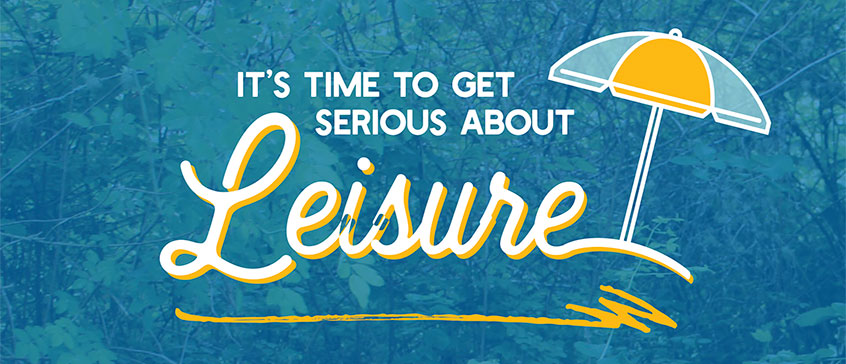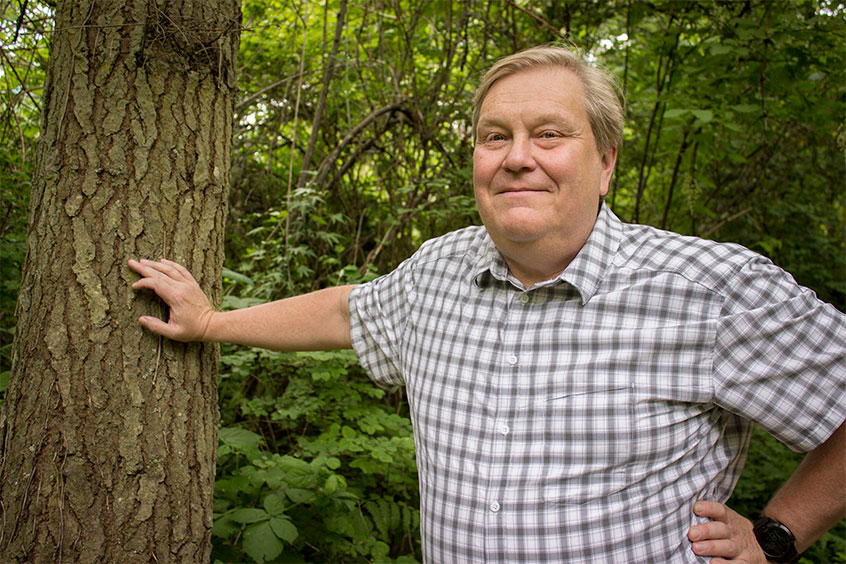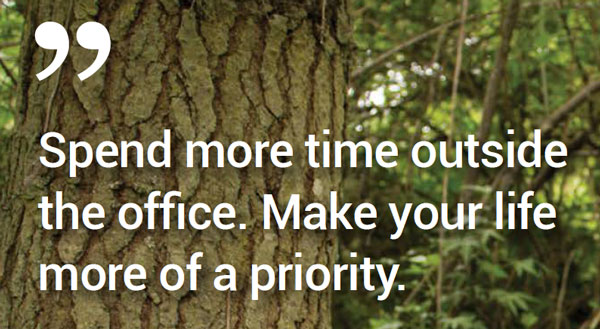Home / Continuing Studies News / It's time to get serious about leisure
It's time to get serious about leisure

with instructor John Meldrum
By Therese Eley, Marketing Services
Meet John Meldrum. New to Continuing Studies, John will be teaching his first course with us, More Than Money: Making the Most of Retirement, this fall.
"I think a lot of us think about the financial side of preparing for retirement but what we don’t necessarily end up preparing for is 'what are we going to do with all of this time? What’s going to happen to who I am?' Because, for a lot of us, our identities are wrapped up in our jobs. So the course helps us consider how those roles change over time and to consider how they can find alternatives to the roles that are changing," says John.
John is a seasoned faculty member at UVic and the Director of the School of Exercise Science, Physical and Health Education here on campus. And he is reflective about the amount of personal identity we, as a culture, tend to wrap up in our jobs, what we do for money. But with an aging Baby Boomer population moving into retirement, he sees so many people struggling with the transition because they haven’t planned for what they’re actually going to do with all that time on their hands.

"Often people have a fantasy retirement in mind, but that only lasts a little while—you know, lying on the beach and sleeping in—after a while that just doesn’t feel good anymore. It sounds great in the moment, but it gets boring really quickly and we start looking for something to do. And more and more, you hear about people going back to work, not for financial reasons but because they're bored."
But it doesn’t have to be that way. Having worked with a PhD student named Arne Hetherington, who is looking at understanding what we need to retire well, John believes that, like financial planning, there are things we can be doing in advance of retirement to help make us prepared for that transition. There are skills and competencies that can be learned.
"Skills such as understanding the benefits you get from activities. For example, I grew up playing a lot of tennis, but as I got older my body sort of started to fall apart. So sometimes activities can disappear over time as we age and if you don’t really understand what that activity was giving you, it can be difficult to go on and find the next thing. So, for me, tennis wasn’t about going outside or plugging into a community, it was about mastery and competence, something I could be good at. Understanding that led me to golf, because it’s hard. So that ability to understand the kind of benefits you get from an activity is valuable."
"Another skill is information seeking. A lot of us tend to have a very narrow range of things we do; it’s so easy to get in the rut of going to see the same person for coffee every morning and then you start to wonder what you’re going to do with the other 17 hours that day."
If you haven't been in the habit of trying new things or connecting with new communities, you can find yourself lost on where to start. "But there are communities of interest all over the place, it’s not hard to connect and find out about them—but it is a skill. Some of us need to learn how to find other folks who are doing what we want to be doing."
 "One of the things we'll do in the class is look back at different stages of your life and look at. What did you do? What did you like? Why did you like it?— and start to use those as starting points. Activities sometimes go away because of work or family or whatever, and just going back and reflecting on those things you’ve enjoyed in the past can give direction for what you might like to do with your time again. And we’ll get creative and work on finding new solutions for what those activities represented to you back then. Because you’re going to have a lot of hours and you don’t want to just fill them, you want to have some meaning and connection and remain contributing and involved."
"One of the things we'll do in the class is look back at different stages of your life and look at. What did you do? What did you like? Why did you like it?— and start to use those as starting points. Activities sometimes go away because of work or family or whatever, and just going back and reflecting on those things you’ve enjoyed in the past can give direction for what you might like to do with your time again. And we’ll get creative and work on finding new solutions for what those activities represented to you back then. Because you’re going to have a lot of hours and you don’t want to just fill them, you want to have some meaning and connection and remain contributing and involved."
John went on to share a personal example of how these skills have come in handy for him. "When I first moved out here—after growing up in Winnipeg, where I had a huge network, and then moving away to do my PhD, where I had a built-in network at school—here in Victoria, we didn’t have any of that, so we had to start fresh. For me, it was tennis here. I had kind of this instant community. And that was a reminder of how important it is to have something like that in your life because, even having just a little bit of competence in an activity, you all of a sudden can get acceptance into a community. For my wife, it was music and getting involved in choirs and connecting through that."
In closing, John offers a little life advice: "Spend more time outside of the office. Make your life more of a priority. Yes, work is meaningful and engaging but I think we sometimes forget about the rest of it. Instead, we should always be investing in who we are. Though it is never too late to plan, you want to get started as early as possible." But for those who don’t know where to start, "hopefully this course will be something where people can come into the class, learn something from everybody in the room and then leave with something they can really use going forward."
- Posted December 14, 2021
RELATED TOPICS: Community Health and WellnessReligion, Philosophy and Psychology
Visit Registration
2nd Floor | Continuing Studies Building University of Victoria Campus 3800 Finnerty Road | Victoria BC | CanadaTel 250-472-4747 | Email uvcsreg@uvic.ca
2026 © Continuing Studies at UVic
Legal Notices |
Sitemap


